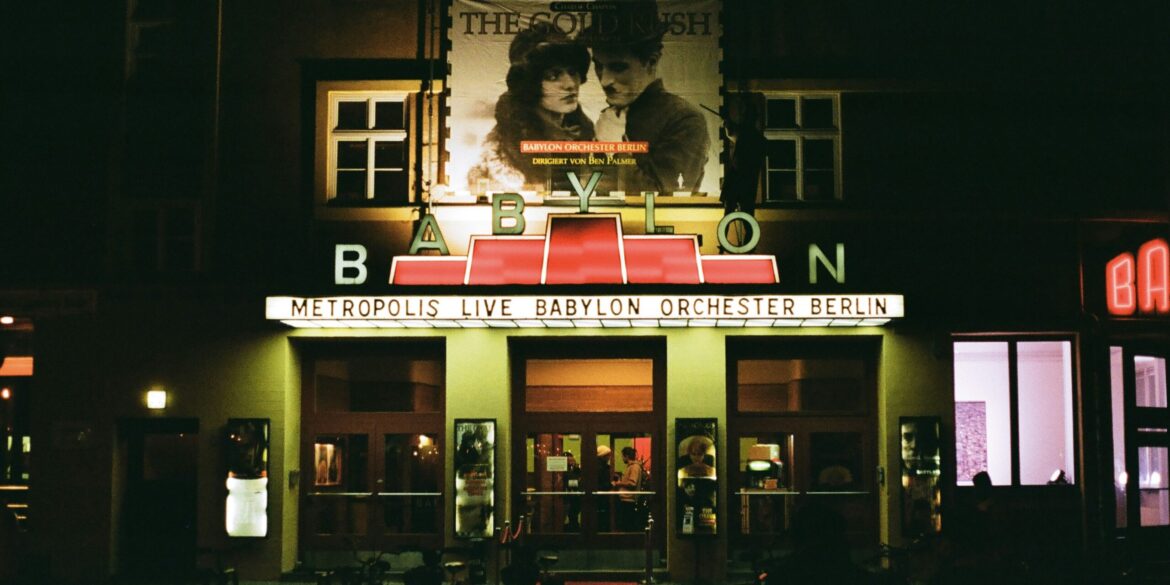The 19th edition of the German Currents Film Festival concluded on Sunday, October 21, in Los Angeles, rounding off a five-day celebration of German-language cinema that emphasized contemporary themes of identity, generational change, and societal introspection. Organized by the Goethe-Institut Los Angeles in collaboration with the American Cinematheque, the festival has steadily grown into a cultural mainstay in Southern California, offering a dynamic platform for German filmmakers to connect with American audiences.
This year’s program stood out for its commitment to showcasing fresh perspectives, particularly through films led by female protagonists and narratives that wrestle with personal and collective identity in a post-unification Germany. Across three key venues—the Aero Theatre in Santa Monica, the Los Feliz 3 Cinemas, and the Gardena Cinema—festivalgoers were treated to a curated selection of feature-length films, documentaries, and short films that blended emotional depth with cultural relevance.
Organizers noted that the 2025 edition was shaped by an overarching interest in “post-identity” storytelling—a lens through which filmmakers explored the disintegration of rigid categories around nationality, gender, and generational roles. The selection included emerging directors as well as veteran voices, all offering diverse storytelling that reflected the shifting cultural landscape of contemporary Germany.
One of the standout features of the festival was its inclusion of stories that spoke to both German and international experiences. Many films addressed universal themes such as migration, memory, family dynamics, and the tension between tradition and modernity. These narratives were often filtered through uniquely German sensibilities, giving the stories a distinct cultural texture while maintaining broad relatability for international viewers.
Audience reception was overwhelmingly positive, with attendees praising the festival’s blend of established and emerging filmmakers. Attendees described the program as “refreshing” and “intellectually engaging,” noting how the variety of storytelling methods—from experimental shorts to emotionally rich dramas—created a compelling and thought-provoking viewing experience. While not every film was universally acclaimed, the general sentiment was that the festival succeeded in offering a bold and innovative look at German-language cinema today.
The closing day featured a panel discussion with selected filmmakers, offering audiences a chance to engage directly with creators in a dialogue about their work, influences, and the role of cinema as a mirror to societal shifts. These discussions have become a hallmark of German Currents and are integral to the festival’s mission to foster cross-cultural understanding through film. For many attendees, these moments of interaction offered deeper insight into the creative process and the cultural contexts behind the stories being told.
Beyond just screenings, the festival served as a meeting point for cultural exchange, with film professionals, students, critics, and cinephiles gathering in an environment that encouraged conversation and discovery. The Goethe-Institut’s role in promoting these dialogues underscores its long-standing commitment to cultural diplomacy and its belief in the arts as a bridge between nations.
What makes German Currents particularly impactful is its ability to introduce American audiences to films that may never receive mainstream U.S. distribution. Many of the films presented, while critically acclaimed in Germany and other parts of Europe, are often overlooked in larger film markets dominated by Hollywood productions. By offering these works a stage in Los Angeles, the festival provides both exposure for the filmmakers and an enriching experience for viewers interested in global cinema.
As this year’s edition wraps up, organizers are already planning for future installments, with an eye on expanding community outreach and further diversifying the voices and genres represented. With increased attention on the role of cinema in reflecting social change, future festivals may see a deeper focus on global issues such as climate change, digital identity, and cultural displacement—all themes that are increasingly prominent in contemporary European cinema.
While German Currents 2025 has come to a close, its impact will linger, not just through the films screened but through the conversations sparked and the connections made. For Los Angeles, a city already rich in cinematic tradition, festivals like this one serve as essential reminders of the power of international storytelling to broaden horizons and deepen empathy.

